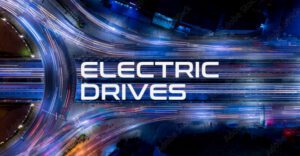Helen Burnell is a partner of law firm Shoosmiths, and specialises in investments surrounding next generation infrastructure, such as EV infrastructure. We spoke to Helen to find out more about her role at Shoosmiths, and gain some industry insight into current EV investments.
What inspired you to focus specifically on sustainable investments within your career?
“My passion for sustainable investments is driven by the urgent need to address environmental and social challenges. Now is a critical time to consider the impact of our investments on the planet and society.
The fast-paced and innovative nature of next-generation infrastructure offers exciting opportunities for growth and transformation. Sustainable investments are driving the future of technology, and I’m fortunate to work alongside brilliant founders, groundbreaking companies, and the visionary investors backing them.”
What is the most significant EV or emobility investment that you and Shoosmiths have advised on recently?
“One of the most significant deals we’ve worked on was Roam’s (formerly EV Chargers) £165 million investment from Denham Sustainable Infrastructure in 2023—at the time, one of the largest investments in the EV charging sector.”
We’ve seen an increasing amount of private investment into both EV infrastructure and EV hardware firms. How do you foresee this to grow in the future, and what barriers (if any) have you seen to investment within this sector?
“Investment in EV infrastructure has surged in recent years, driven by innovations in battery technology and charging solutions that make electric vehicles more practical and financially viable with a further private investment of 6bn expected into the industry by 2030.
This is alongside the government’s pledge of £2.3bn to help industry and drivers make a supported switch to EVs, with a £200m budget to help expand public charging and a dedicated Local Electric Vehicle Infrastructure (LEVI) fund of £381m for local authorities in England.
With all that said, a Charge Point Operator (CPO) faces significant challenges, including high upfront costs, infrastructure complexities, and market uncertainties. Building a reliable EV charging network is a complex and capital-intensive challenge. It demands significant upfront investment in infrastructure and hardware, while competition for strategic locations and inconsistent grid capacity add further hurdles.
On top of that, shifting consumer demand and evolving regulations create uncertainty for investors – especially in the absence of a clear, long-term government roadmap. However, the future of EV charging investment is promising, driven by technological advancements and growing global demand.
We anticipate continued strong investment in the sector, alongside further consolidation of networks and CPOs, as the race for market share intensifies.”
How have you found the industry reacting to Labour’s recent adjustments to the ZEV mandate – namely the ban on sale of new petrol and diesel cars from 2030, with an exemption for hybrids and plug-in hybrids until 2035?
“The industry has had mixed reactions to Labour’s adjustments to the ZEV mandate. Some appreciate the flexibility of allowing hybrids and plug-in hybrids until 2035, seeing it as a pragmatic transition step allowing consumers to have more certainty as they make the transition. This approach helps address current market and technological limitations while supporting the imperative nature of decarbonisation.
However, concerns remain about market uncertainty and economic pressures, with manufacturers worried about the financial strain and the need for substantial investment in EV infrastructure. Additionally, the lack of a clear long-term strategy adds to the complexity of meeting the ZEV mandate targets.”
Tell us more about Shoosmith’s spHERe network. What steps need to be taken to further support female entrepreneurship?
“SpHERe is our network dedicated to female founders and women in investments. We launched the network in 2019 in response to the fact that, on average, only 2% of venture capital funds in the UK are allocated to female founders. While we may not have a clear breakdown of total investment levels into female-led EV companies, there are some incredible entrepreneurs leading the charge (pun intended!).
Last year, we established the Women in Energy and Infrastructure chapter of SpHERe to specifically focus on the sector for female senior leaders, entrepreneurs, investors, and intermediaries. This initiative has not only led to some fantastic events but also fostered valuable connections within the network, creating opportunities for its members. Witnessing these connections and opportunities brings me immense joy.”
Do you drive an EV yourself? If so, what model is it, and how are you finding it?
“We are currently in the process of buying our first EV car which has been a process given the rural part of the country we live in. We are currently torn between the Polestar 2 and the boot space of the Volkswagen ID.4.”
Our thanks go to Helen Burnell for taking part in our EV Leaders series. You can find out more about the work Shoosmiths do, here.




